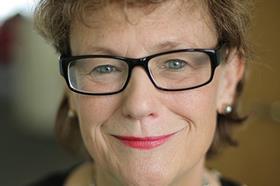Thinking differently about how we engage our workforce is key to addressing some of the major obstacles we’re facing in cancer care, writes Jane Maher


The NHS is rightly in a celebratory mood at the moment, but the current picture of the cancer workforce is still daunting: we have more money allocated but we haven’t got enough people to meet the growing demand for more cancer care and support. The number of people living with the disease set to reach more than 4 million by 2030 and there are still considerable gaps in our cancer workforce.
We know that there is currently huge regional variation within the workforce which results in hefty workloads for professionals in some areas to help cover the vacancies. For some of these overworked members of staff, job dissatisfaction and turnover rates are high which inevitably has a knock-on effect on patient care.
We’ve recently heard two big announcements that appear to help to address these issues; an increase in funding for the NHS and a new recruitment campaign aimed at getting more young teenagers interested in a career in healthcare.
This is welcome news, and both are positive steps in the right direction, but everyone recognises we have a complex and large scale problem to fix and it will take time for the fruits of the recruitment drive to come to bear.
No quick fix
Unfortunately, there is no quick fix, no simple solution. So, if there is money coming in, the question is how can we also get more creative to plug the gaps in the workforce and offer staff a rewarding, enjoyable job in which they feel valued and supported to give patients the best possible care?
Just as important as focusing on recruiting young people into the cancer workforce is thinking about what we can do to retain the expertise of those professionals who are approaching retirement. Many of our healthcare professionals are retiring five or 10 years earlier than a decade ago.
It’s vital that workforce planning is prioritised but we need to ensure we’re being creative and flexible when we think about how people deliver their work
We need to find creative ways to keep hold of these experienced professionals, especially as they have such valuable knowledge of cancer and the healthcare system. We need to facilitate innovative and flexible ways in which they can keep working, such as creating roles which are part time and flexible on location, which allow them to step back from the demanding pace of the front line.
Their skills and experience could lend themselves well to mentoring, coaching, and supporting other staff. Giving people more freedom could be a key way to retain skilled people and boost morale in our workforce.
There are some real pockets of innovation where NHS trusts are finding new ways to plan staffing levels which we need to learn the lessons from. For example, the Brighton and Sussex University Hospitals Trust transformed its accident and emergency workforce by using a patient care centered approach to staffing.
By introducing a new rota system, staff could choose which shifts they worked as long as all the needed clinical shifts were covered. This meant that staff were able to fit their shifts around other commitments, such as childcare and study, and the trust saw a reduction in turnover.
Not only did this result in a happier workforce with a good work life balance, but crucially patients didn’t have to wait as long to be seen and the number of people who had to return to A&E after being discharged dropped significantly.
We at Macmillan Cancer Support are working with NHS colleagues to contribute to some of that innovation looking at new models of skill mix, new roles, finding ways to link primary and secondary care, and helping professionals working in different professional groups to connect to each other. For example, support worker roles increase capacity, experience, and support but are less costly.
Thinking differently about how we engage our workforce is key to addressing some of the major obstacles we’re facing in cancer care. It’s vital that workforce planning is prioritised but we need to ensure we’re being creative and flexible when we think about how people deliver their work.
And it’s not just about doctors and nurses. As an oncologist, I simply couldn’t do my job without the support of amazing colleagues – volunteers, receptionists, healthcare assistants, secretaries, support workers, and beyond. We are a team. The NHS is one big team.
The 70th birthday of our national health service is an opportunity to recognise and celebrate the hard work of all the staff that make it what it is. We want to be a part of delivering world class cancer care but we need creative and clear plans underpinned by sustainable funding if we’re to deliver that in the years to come.


























No comments yet